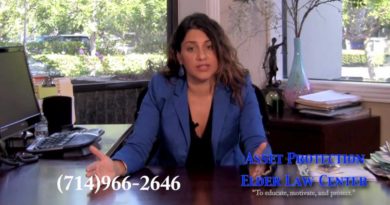How to Avoid Probate | Indianapolis Estate Planning Attorneys
A common goal found in many comprehensive estate plans is probate avoidance. Avoiding probate entirely may be impossible; however, with some careful planning you can create an estate plan that dramatically reduces the amount of time and money spent on the probate of your estate. That, in turn, may make much needed assets available to loved ones much sooner after your death. The Indianapolis estate planning attorneys at Frank & Kraft discuss common estate planning tools that can help your estate avoid probate.
Understanding Probate
Over the course of your lifetime, you will acquire numerous assets that make up your “estate.” Your estate may include real or personal property as well as tangible and intangible assets. Upon your death, all those estate assets potentially become part of the probate of your estate. Probate is the legal process that will ultimately transfer your estate assets to the new owners. Avoiding probate is a common estate planning goal for several reasons. First, the terms of your Will become public record during probate. Avoiding probate allows you to keep those details private. Second, probate is time-consuming. Probating even a modest and uncomplicated estate can take months. Often, the probate process can take a year or longer, meaning beneficiaries must often wait a long time to receive their intended gifts. Finally, probate can be expensive. Everyone involved in the probate of an estate, including the Executor/PR, attorneys, appraisers, real estate agents, and accountants, is entitled to a fee for their services.
Common Probate Avoidance Tools
The key to diminishing (or even avoiding) the time and expense of probate is to reduce the size, value, and complexity of your probate estate. In other words, the fewer probate assets you own at the time of your death, the better. Five common estate planning tools/strategies to help your estate avoid probate include:
- Using a trust. Not all assets are required to go through probate. Assets held by a trust, for example, bypass the probate process altogether and can be distributed to beneficiaries as soon after your death as you wish. Using a trust to distribute assets offers other benefits as well, such as the ability to stagger an inheritance instead of leaving a lump sum to a young beneficiary.
- Lifetime gifting. Only assets owned by you at the time of your death are potentially subject to going through probate. With that in mind, gifting assets while you are still alive instead of waiting until your death is an excellent probate avoidance strategy. In addition, there are often tax advantages to lifetime gifting that may further benefit your estate.
- Rights of survivorship. The way assets are titled can also be used to avoid probate. Your interest in your house, for example, could transfer directly to a spouse or adult child after your death if titled properly. Holding the title jointly with rights of survivorship, allows your interest in the property to pass directly to the co-owner upon your death without first going through probate.
- “Payable on death (POD)” or “transfer on death (TOD).” Assets held in a financial account, when designated as POD, will automatically become the property of the designated beneficiary upon your death; however, the beneficiary has no legal rights to the assets while you are alive.
- Life insurance proceeds. Life insurance proceeds are non-probate assets and, therefore, are paid out directly to the beneficiary after your death. Consider using them to fund a funeral trust which then pays for your funeral.
Contact Indianapolis Estate Planning Attorneys
For more information, please join us for an upcoming FREE seminar. If you have additional questions or concerns regarding how to avoid probate, contact the experienced Indianapolis estate planning attorneys at Frank & Kraft by calling (317) 684-1100 to schedule an appointment.
Paul Kraft is Co-Founder and the senior Principal of Frank & Kraft, one of the leading law firms in Indiana in the area of estate planning as well as business and tax planning.
Mr. Kraft assists clients primarily in the areas of estate planning and administration, Medicaid planning, federal and state taxation, real estate and corporate law, bringing the added perspective of an accounting background to his work.
Latest posts by Paul A. Kraft, Estate Planning Attorney (see all)






